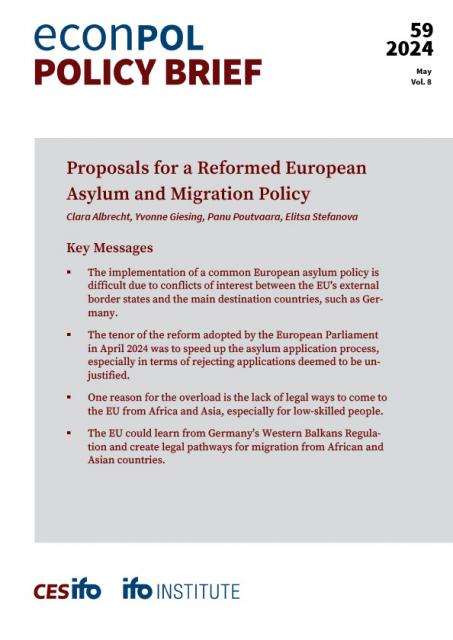Proposals for a Reformed European Asylum and Migration Policy
Key Messages
- The implementation of a common European asylum policy is difficult due to conflicts of interest between the EU's external border states and the main destination countries, such as Germany.
- The tenor of the reform adopted by the European Parliament in April 2024 was to speed up the asylum application process, especially in terms of rejecting applications deemed to be unjustified.
- One reason for the overload is the lack of legal ways to come to the EU from Africa and Asia, especially for low-skilled people.
- The EU could learn from Germany’s Western Balkans Regulation and create legal pathways for migration from African and Asian countries.
The weaknesses of the Common European Asylum System have led to conflicts of interest between the EU’s external border states and the main destination countries, such as Germany. After years of negotiations, the reform of the European asylum policy was formally adopted by the European Parliament in April 2024. It introduces an accelerated procedure in order to speed up the asylum application process, especially in terms of rejecting applications deemed to be unjustified. However, it does not address one of the main problems: the lack of legal ways for low-skilled people who are migrating for economic reasons.
Clara Albrecht, Yvonne Giesing, Panu Poutvaara, Elitsa Stefanova: “Proposals for a Reformed European Asylum and Migration Policy,” EconPol Policy Brief 59, May 2024.
